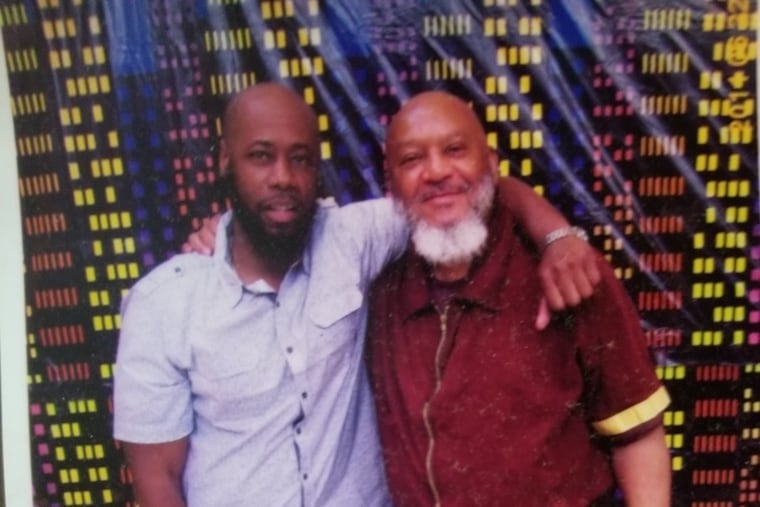Commutation in sight, Pa. lifer Bruce Norris died of COVID-19 awaiting governor’s approval
He was one of 14 lifers waiting for Gov. Tom Wolf to act on the recommendation of the Board of Pardons. Many of them hoped he would act quickly, in light of the COVID-19 pandemic.

In 2019, when the Pennsylvania Board of Pardons asked Bruce Norris what his home plan was and what he might need to be successful, the inmate, who was in his late 60s, shook off the question. He wasn’t worried, he told them. He had all he needed.
“My dad was so excited, knowing we had jobs and housing for him and there was nothing he could possibly need,” his son Perry Lighty said.
The board took that as a lack of plan, and held his recommendation under review. Norris finally got the board’s approval on Dec. 19, 2020 — but joined 13 other lifers who were all waiting for Gov. Tom Wolf to act on the recommendation. Many of them hoped he would act quickly, in light of the COVID-19 pandemic and the vulnerability of prisoners, who have been infected at more than three times the rate of the general population.
Norris caught COVID-19 earlier this month at State Correctional Institution Phoenix. He believed he caught it from a cellmate, his first after decades of single-cell status. He died early Saturday at Einstein Medical Center Montgomery after nearly 45 years in prison. He was 69 years old.
For Lighty, the loss was doubly painful. “This was time after 45 years that he could have been home with his loved ones,” he said.
A spokesperson for Wolf said all recommendations for clemency must follow a process before the governor can sign off on them.
“The recommendations are processed by Board staff and then through a thorough legal review before heading to the governor’s desk for consideration. Upon receipt of the written recommendations the governor will review each case individually and weigh his decision after factoring in the effect a pardon will have on any victims and the likelihood of the person to re-offend,” the spokesperson said in an email.
“Given the success of efforts to increase the number of applications, without additional resources and staff there is no ability to process the recommendations any faster. The administration has increased the number of staff ... more needs to be done.”
Norris, a father of three and a great-grandfather, was convicted of playing a role in a 1975 murder that occurred during a robbery of a speakeasy in Philadelphia. He was always keenly aware of the wrong he had done, telling a reporter in 1992 that he told his family not to lament Christmas in prison: “Think about the guy who was killed, how his family feels. At least you can talk to me.”
He earned a bachelor’s degree from Villanova University in prison, was a top seller of Girl Scout cookies within Graterford prison, and was a father figure to many young men who came through the prison over the years.
Norris had applied for commutation twice, Lighty said, knowing the odds were long. “The question always is, How long are you going to be here? When are you coming home?” Norris said in 1992. “The answer for the last 17 years has always been, ‘I’m not sure.’ For a lifer there are only a few ways out of here: in a pine box, commutation, the courts, or over a wall.”
The board’s recommendation had brought hope, finally. But the last few weeks had been “a roller coaster,” Norris’ daughter Janice Stewart said, as his health took a turn for the worse.
Celeste Trusty, of the advocacy group Families Against Mandatory Minimums, said the situation underscored the need for faster action on clemency, or a reprieve process for those under review.
“I just wish there was more of an emphasis on the immediate need to get people out to support the Department of Corrections in their efforts to mitigate the spread of this disease,” Trusty said. “Until we have legislation for medical parole” — which has been proposed in Harrisburg, but has not passed — “we’re kind of stuck with clemency as the main mechanism for relief.”
Staff writer Abraham Gutman contributed to this article.